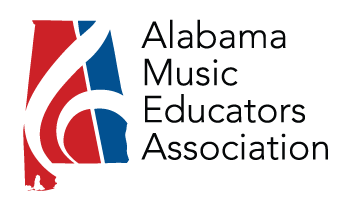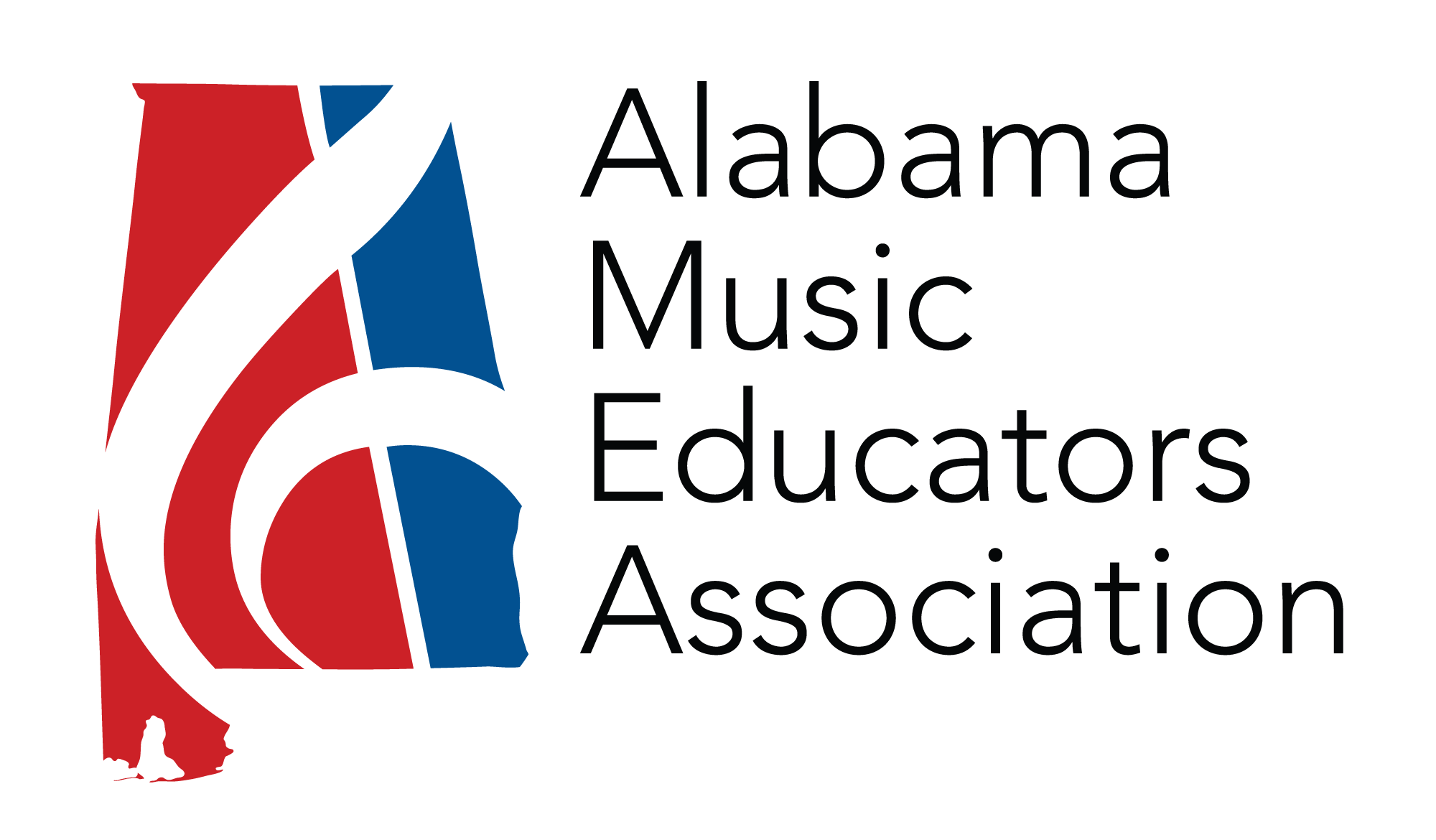Day: October 14, 2018
AMEA President: Hello AMEA! Back to Work
Oct 14 2018

I hope that this issue of the Ala Breve finds you experiencing well-planned, effective, sequential, and standards-based lessons in which your students are learning a life-long love and appreciation of music. Whatever Division you belong to and whoever makes up your classroom, my wish is that you feel empowered and excited to have a positive effect on our next generation of music lovers, music consumers, musicians, and citizens. And while we are at it, let’s all acknowledge what a fantastic job our Editor does with our publication. I can tell you from many conversations I have had over the past two and a half years with leaders from other states that the Ala Breve provides a model for many other state publications. Leaders from around the country constantly and consistently praise the work that Mr. Taylor does for us. Thank you so much Garry!
Southern Division Meeting
The Southern Division of NAfME held its Fall Board Meeting in Nashville, Tennessee on September 9-10. Representing you at the meeting besides myself were President-Elect David Raney and Executive Director/Editor Garry Taylor. Some of the topics discussed were state by-laws and policies, navigating the NAfME website, State Chair Positions, collegiate voting, budgeting, resources, technology, Societies and Councils, Tri-M, and the organizational split with the Give a Note foundation.
National Conference
The NAfME National Conference will take place November 11-14 in Dallas, Texas. You may feel free to consider this an advertisement, and I’m proud to do so. Our national leaders have conducted extensive research and I’m happy to report that they have listened to the respondents and associated generated data. The new model for the National Conference looks to be a very effective one and includes several tracks of learning for the Professional Music Educator. There will be three two-day forums including Emerging Leaders, Collegiate, and Music Program Leaders. There are also several topic areas or “Opuses,” which can be followed including Learning, Innovation, Involvement, Inspiration, and Technology. You can receive 20 hours of professional development for attending an Opus and/or 10 hours of professional development for attending one of the three two-day Forums. Learn more about the newly revised National Conference offerings at nationalconference.nafme.org and I’ll see you there.
August Meeting and 2019 Conference
The AMEA Governing Board met in August with a full agenda of 21 business items to accomplish. I am proud to report that the Board worked diligently and completed all items on the agenda. Most importantly, the Board completed planning our January 2019 Conference. I won’t belabor the point by giving a substantive analysis of the conference here, but I will say this: Get there, and get your colleagues there as well! We have all heard the phrase to the effect that “There’s nothing there for me.” Just peruse the schedule and you will see that not only is there something for everyone, but there is a lot there for everybody. There are more clinic sessions, interest sessions, meetings, and of course more concerts. We will also have a general session, keynote address, and awards. You do not want to miss this, so get your pre-registration complete and join your 1,200 Alabama Professional Music Educator Colleagues for a fantastic conference!
Conference Registration
As I mentioned in my last article and through no fault of anyone in the AMEA, we experienced major issues with registration at our 2018 Conference. I am super excited to announce that those problems have been dealt with and solved. We all owe a huge debt of gratitude to Dr. Carl Hancock for engineering a new registration program and process, which is currently up and running perfectly. The best way to alleviate any delays in the registration process is still to pre-register and get right to the conference activities. You won’t want to miss a minute. Thank you, Dr. Hancock!
Bicentennial Performances
Bicentennial Performance Applications for the 2019 Spring Legislative Session are due November 1. These performances will occur in the Rotunda of the State Capitol building and were very well received last year. There are some very specific rules and logistical concerns for these performances, so please read the performance application very carefully. You can find all the information you need on the myamea.org website. I hope to see you and your group in Montgomery this coming spring!
Appointments
I mentioned in my previous article that I was going to make some appointments to the Presidential Cabinet, and I am pleased to report to you that some of these appointees and their associated committees are already doing great work. You will begin to see the fruits of their labors in this and coming issues of the Ala Breve, at our Conference, and through other special reports. The Presidential Cabinet will also meet during our conference in Birmingham to discuss, strategize, and plan for the future. Here are some highlights of recent appointments: Carlton Wright-Diversity in Music Education, Stephanie Ezell-Health and Wellness, Keith Anderson-Technology, Dr. Rob Lyda-Advocacy, David Raney- Mission and Vision, Deanna Bell-Sexual Harassment and Safety in the Workplace, Margaret Herron-AP Music Theory, David Allinder-Harmonizing Instruments, Susan Smith-AMEA Emerging Leaders, Craig Cagle-Grant Writing, and Franklin Bell-Copyright Compliance. Others are still being formed. Thanks to everybody involved and I look forward to seeing the results of your research. You will also notice that I have added Elementary/General, Jazz, and Orchestral Music Reviews to our publication to generate more useful information for all our members. Thanks also to our newest Music Reviewers!
Visible and Vigilant
In closing, may I ask each of you to be both Visible and Vigilant? Be visible in your towns, cities and counties. Be visible to your local residents and school populations. Be visible in our state. Be visible to your elected officials at all levels of government. Invite people to come see your performing groups and classrooms. Let our fellow citizens and elected officials see what you are doing, what you are accomplishing, and even what you might be struggling with. Let them see what a difference Music Education makes for our students, our communities, and our culture. Also, be vigilant. Keep a watchful eye on legislative happenings at the local, state, and national levels. Many decisions are made for us and about us, often without us even knowing there was a decision being made. Be vigilant and stay informed about music education policy in your local school, school system, city, county, state, and nation. Contact elected officials at all levels, communicate your thoughts, ask them to visit you and your students, and stay vigilant about their decisions and policy making. Our art form, our students, and our noble profession deserve both our visibility and vigilance.
Looking forward to seeing all of you at the Conference!
Greg
ABA: Take Care of Business – Register for AMEA
Oct 14 2018

As the school year has begun with 12+ hour days, working with beginners on their new instruments and preparing for all the next events of the year, don’t forget to register for the AMEA Conference in Birmingham, January 17-19 2019. The conference is a great way to re-energize at the beginning of the second semester. With the number of applicants, Garry and I discussed different scheduling possibilities, and that includes an amazing program by The Alabama Winds. Let me encourage you to make plans now to attend their concert, set for 10 pm Thursday night. You do not want to miss it! In addition to this treat, we’ve planned many clinics covering a wide range of topics that we hope will inspire you to ‘learn and return’ by taking some new ideas and energy back to your own programs.
The board received thirty-five applications to perform. Choosing from all the applicants was a great problem to have and shows our bands are continuing to improve and are wanting to share their outstanding students with the music educators of Alabama. The groups that have been selected are truly outstanding, and include Liberty Park 7&8 MS Band, Oak Mountain HS Symphonic Band, Music Shoals HS Wind Ensemble, Thompson HS Wind Ensemble, UAB Wind Symphony, Alabama Winds, Bob Jones HS Percussion Ensemble, Auburn University Jazz Band, Fairhope MS Symphonic Band, and the Intercollegiate Band.
Please remember that the middle school etudes are selections from the Rubank Advanced Volume I. These students must present a copy of the book at the registration table at the district level. String bass and percussion will continue with the current cycle of etudes. The scales for the middle school must be performed at the range listed on the website. There is also a four-minute time limit on the middle school scales. As a professional organization, we must strive to adhere to the rules and regulations that are in place for the benefit and fairness of our students’ success.
The music performance classifications have changed for this year. Your district chairmen should have discussed these changes in detail at your district meetings or through email. The current bylaws are online at www.myamea.org. Please read the bylaws first before calling and asking a question whose answer can be easily found. Your ABA board works very hard for you while maintaining their own band programs, and we ask that you please be patient with them at the busy times of the year. Read their emails, get registrations done on time, and participate and help during your district events. Band directors demand so much of our students on a daily basis, but we often do not live up to what is expected of us as members of ABA. I am speaking to myself as well when I say this: let us strive to do our jobs for our students and for their success at ABA events. When judging all-state auditions, they are all your students and need professionalism and fairness. When you don’t meet deadlines, judge at district All-State auditions, or follow the bylaws and guidelines, it is your students that potentially suffer.
If you have not already updated your directory on abafest and myamea, please do so immediately. We are still finding mistakes in member’s information. This helps the organization keep you informed and
to make sure your registrations are processed correctly. The ABA has asked that when you are registering for events, you complete the process yourself by mailing the payment and registration to the appropriate person at ABA. We constantly receive checks and registrations sent to the wrong places, causing delays in processing. Thanks for your attention to this detail.
All-State 2019 will be in Huntsville. Please use the hotel links on the website to book rooms. It is easier for you and benefits the organization!
Finally, the AMEA conference is more than great concerts, inspirational and educational clinics, and meetings. It is a time to listen to veteran directors on how they have conquered the problems the younger directors face. And for veteran directors, it’s a great time to hear new ideas, innovative techniques, and to be inspired about a fresh look at a career to which they have devoted their professional lives. Find a way to join us at the AMEA conference and let’s continue to make our organization stronger for the benefit of our students.
AOA: From the President!
Oct 14 2018
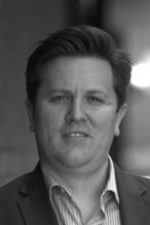
Thank you for taking the time to read this message from your Alabama Orchestra Association. If the start to your fall has been anything like mine you are already in need of some time to rest and rejuvenate from the hectic start of the new school year.
While the start to the school year is always a busy time, it doesn’t slow down for those of us involved in the orchestral world here in Alabama. For us, October is audition month with students from all over the state preparing and auditioning for a spot at the 2019 Alabama All-State Orchestra Festival being held February 7-10, 2019 at the University of Alabama. With a great lineup of conductors and some fantastic repertoire, students will have an experience like no other right here in their own state.
Auditions for our All-State Festival will take place during the first two weekends in October, with results posted to our website by November 18. Students that have a successful audition and are selected for All-State will need to accept their spot by December 1. Financial Aid forms are also due at that time.
The AMEA conference in January 2019 is the perfect pick-me-up as we transition into our spring semester. Your AOA has been fortunate to select several great clinicians, headlined by Bob Phillips, who will offer something for everyone – both for our division as well as the general membership as a whole. More information about these sessions can be found elsewhere in this edition of Ala Breve. If you have not yet done so, this would be a great time to renew your membership and register for the conference.
I would also like to bring to your attention the work Chip Gulbro and the new ASTA-Alabama board is doing to advance string playing in Alabama. They will be holding their annual Honor Strings Festival at the University of Alabama from October 26-28, 2018. For more information about the festival and the other work being done by the Alabama chapter of ASTA, please visit their new-look website at: http://astabama.org
Finally, your AOA wants to hear from you. We would love to feature you, your program, your upcoming events, and anything else you feel should be shared on our social media platforms. We need to better highlight all the orchestral activity occurring in our state and we can assist to make that happen. Please take advantage of this opportunity.
I look forward to hearing from you and seeing you all soon. Regards,
Guy Harrison
AVA: Updates and Coming Events
Oct 14 2018
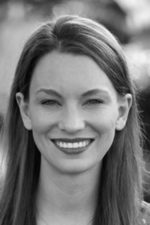
Thank you to everyone who came to this year’s Fall Workshop, and thank you to Dr. Damion Womack and Huntingdon College for hosting us. I hope that you all were able to leave with some new strategies and ideas to use with your choirs and that you were able to enjoy some time visiting with your colleagues.
BYLAW CHANGE
At Fall Workshop, the membership voted to change the eligibility requirements for the Pat Blackwell Music Education Award to make them align with the Outstanding Choral Student requirements. Article XV, Section 15.2 of the AVA Bylaws now states:
In addition to the general eligibility requirements for AVA events listed in Article IV, each nominee for the Pat Blackwell Music Education Award must:
A. Have been a performing member of an All-State choir (SATB, TTBB, SSAA) the preceding year. B. Have been selected for the current year’s All-State choir.
C. Be a senior with an overall C average or above
D. Be in good standing with his/her school and choral department
E. Intend to major in choral music education in college. NEW SIGHT-READING GUIDELINES
AVA Vice-President Ginny Coleman proposed in 2016 that we reevaluate our sight-reading requirements to allow for varying levels of choirs. She appointed me to work with a committee to research other states’ guidelines and to involve the membership in creating new guidelines for us. The AVA board felt this was necessary because other disciplines are tested on various levels based on student
experience. The sight-reading committee chose to adopt the guidelines for levels Ginny had created, and with the help of the sight-reading committee, we created a chart that shows what will be expected of each level. In addition, we chose to allow beginning groups to read one voice-split less than their stage voicings. For example, a beginning SAB choir may choose to read a 2-pt example or a beginning TTB group may read a TB example. We just ask that each director write a rationale for the need on the judge’s sheet so that the judge will understand the necessity. For example, a 20-person beginning SAB group with only a few baritones might choose to read 2-pt. and would write on the form that they are reading 2-pt. due to the size of the choir, small number of baritones, and their level of experience.
As to what is expected of each level, we created our chart using the old AVA guidelines, so for most of our choirs, the level of difficulty will seem about the same. However, we believe these new guidelines will allow more beginning high school choirs and 1-2 grade junior high and high schools to
participate. We also felt there was a need for an advanced level. Until now, we have had 9th-grade schools, 9th-12th-grade schools with no feeder programs, and 9th-12th-grade schools with 6th-8th- grade feeder programs reading at the same level of difficulty.
Lastly, we updated our sight-reading procedures to allow for tonality to be established once during the 5-minute study period and again before each singing of the example. We know that many directors have their students audiate during the study time and would prefer them to audiate in the correct key. The new standing rules state that “Tonality may be established by playing the tonic or chord once at any point during the study period.”
The new sight-reading guidelines may be found in the revised General Membership Handbook on the AVA website.
ALL-STATE AUDITIONS
All-State auditions are fast approaching. Please be sure to read the All-State Audition Standing Rules before your audition date. Make certain that each of your students has the All-State Adjudication Form F2.2 complete with parent signature and song titles listed in audition order. The lists of song titles in audition order may be found on the AVA website. Also, every student will sing an excerpt from Ed Robertson’s arrangement of “Alabama” as part of the audition. This piece is not included in All-State music packets, so make sure your students each have an original copy of this piece and have learned it. This year, we are also having all directors submit two of their All-State auditionees singing “Alabama” through Acceptd.com. This will allow each school to interact with the service and to discover any concerns we may have in regards to using them in the future. After All-State auditions, please email me any questions or concerns while they are fresh on your mind so that we can discuss them at AMEA.
ASSC AUDITIONS
For this year’s auditions, each student will submit four vocal videos and two dance videos through Acceptd. For the vocal videos, students will sing along with the Matthew Curtis accompaniment tracks. For the dance portion, the choreography video will be online on YouTube one week prior to the submission deadline. Each student must submit a front-view and a back-view video so that the judges can make sure the students have the dance memorized. Students will need to sing their parts while dancing.
AMEA CONFERENCE
The 2019 AMEA Conference will be held January 17-19 at the Birmingham-Jefferson Convention Complex in Birmingham. Our guest clinician will be Dr. Lori Hetzel from the University of Kentucky. She will be presenting sessions entitled “Unleashing the Power and Beauty of the Female Voice in a Choral Ensemble” and “Empowering the Treble Chorus with Quality Repertoire.” J.W. Pepper will also be sponsoring a reading session of repertoire chosen by Dr. Hetzel. In addition, we will have some wonderful concerts and sessions by choral directors and choirs in our state. I hope to see you all there!
From the ELEM/GEN President: It Takes a Community
Oct 14 2018
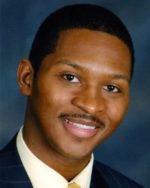
In the book, What Teachers Should Know and Be Able to Do, published by the National Board for Professional Teaching Standards, the five core propositions which govern the process of certification are explored and explained. The core propositions are:
1. Teachers are committed to students and their learning.
2. Teachers know the subjects they teach and how to teach those subjects to students. 3. Teachers are responsible for managing and monitoring student learning.
4. Teachers think systematically about their practice and learn from experience.
5. Teachers are members of learning communities.
These propositions serve as the anchor of what National Boards consider accomplished teaching. Though many of you may not be board certified, you still may exhibit many, if not all, of these propositions. I could use my space here examining how you measure up against each of these propositions, but instead I’ll focus on proposition five, teachers are members of learning communities.
In a study about professional development, Darling-Hammond and McLaughlin (1995), found that teachers need opportunities to “share what they know, discuss what they want to learn, and connect new concepts and strategies to their own unique contexts” (p. 1). These are perfect descriptors of what professional learning communities should be. This year, your elementary board wants to ensure your voice, your experiences and your musical wants are represented in every workshop and session we plan. It is our goal that your professional learning through AMEA continues to be positive and meaningful.
Our professional learning communities begin in just a few days at the 13th Annual Elementary Music Festival at Samford University’s Wright Center on Friday, October 12th. Approximately 400 elementary students representing over 40 schools across the state have registered. The clinicians for this event will be Dr. Damian Womack and Dr. Sara Womack. This music festival is a great opportunity for our students to learn and grow. Although registration for this year’s festival has passed, please consider including your students for next year’s festival. The following day, Saturday, October 13th from 9 a.m. to 1 p.m. we will have our joint Fall Workshop sponsored by the AMEA Elementary/General Division, AOSA and SHAKE. This year our clinician will be Orff specialist Sara Womack. The workshop will be held at Vestavia Hills Elementary Central 1289 Montgomery Highway, Vestavia Hills, AL 35216.
The 2019 AMEA Professional Development Conference will convene at the BJCC in Birmingham. Many rich professional learning opportunities await you. This year we are honored to have Beth Ann Hepburn as our featured clinician. She will be presenting four sessions for us ranging from developing part-singing to using body percussion with songs and rhymes. We will also have several member guided sessions including bucket drumming with Viktoria Truesdail and learning new ways to put on a show by Kristi Howze. Kodaly specialist Jeremy Howard will clinic on musical make-believe while Rob Lyda will help us celebrate Alabama’s Bicentennial. Jennifer Canfield will show us how to create music for the elementary classroom, Art Williams will present on the Fred Rogers approach to teaching elementary music, and Stephanie Porter will demonstrate reading in music and recording on a budget. Our friends
from Quaver and Chord Buddy will be there and other clinics and vendors you will not want to miss. Please be sure to reserve Friday night for an evening of fellowship and music sharing fun. We look forward to seeing you in Birmingham on January 17th -19th. Be sure to check the AMEA website (www.myamea.org) for details about preregistration and hotel information.
We hope to see you all at the Fall Music Workshop on October 13th, and at the 2019 AMEA Professional Development Conference in Birmingham in January. Please contact us at (elementaryamea@gmail.com) for questions or concerns.
Phil R. Wilson, President,
AMEA Elementary/General Division
Darling-Hammond, L., & McLaughlin, M. W. (1995). Policies that support professional development in an era of reform. Phi delta kappan, 76(8), 597-604.
Upcoming Dates:
13th Annual Elementary Music Festival, Friday, October 12th, Samford University’s Wright Center
Joint Fall Workshop sponsored by Elementary/General Division of AMEA, AOSA, and SHAKE, Saturday, October 13, 9 a.m. to 1 a.m.
NAfME In-Service Conference, Nov 10-14, 2018, Dallas, Texas
2019 AMEA Professional Development Conference, BJCC, Birmingham, AL, January 17-19.
American Orff-Schulwerk Association, National Professional Development Conference, November 7-10, 2018, Cincinnati, Ohio
SHAKE Spring Workshop, April 6, 2019, with Dr. Michele Paynter Paise.

